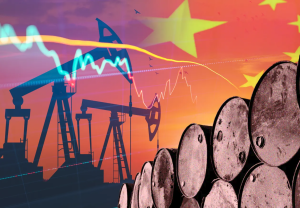Europe and the UK are grappling with escalating energy challenges as surging gas prices and concerns over renewable energy development dominate the agenda.
In Europe, natural gas prices have surged to a one-year high of over €50/MWh, driven by colder-than-average weather, production outages, and below-average storage levels. EU gas storage is 71.8% full, falling short of the 16-year average of 74.29%. Experts warn that persistent cold could push prices to €84/MWh, triggering gas-to-oil switching and increased reliance on LNG imports, particularly from the US. These developments are straining economies, with key industries like Germany’s automotive sector already under pressure.
In the UK, Ofgem’s recent 1.2% energy price cap rise has resulted in household energy bills 67% higher than in winter 2020/21. A survey by fuel poverty coalition Warm This Winter reveals that 79% of consumers fear further price hikes, while 74% worry about global energy price instability over the next five years. Two-thirds of respondents are concerned about the UK’s dependence on oil and gas, and 53% doubt renewables will expand fast enough to make a significant impact.

With 8.8 million people living in cold, damp homes due to fuel poverty, experts emphasize the need for insulation and renewable energy expansion to reduce dependency on volatile oil and gas. Public support for renewable energy remains strong, with 80% backing offshore wind and solar farms and 74% supporting onshore wind. Swift action is necessary to address the energy instability and its economic impacts.
Can Middle East Fill the Gap?

Middle Eastern exporters have a unique opportunity to address Europe’s energy crisis by stepping up as reliable suppliers of LNG, oil, and derivatives, especially as the region faces escalating energy costs and supply disruptions. However, they must overcome several challenges. Europe’s historical reliance on Russian pipelines has created an ingrained supply chain that is difficult to disrupt, while logistical hurdles such as limited LNG infrastructure and shipping capacity add complexity to increasing Middle Eastern exports. Additionally, Europe’s focus on transitioning to renewable energy sources means that fossil fuels, including those from the Middle East, are not always viewed as a long-term solution. Middle Eastern exporters must also shift the market perception of their region—currently seen mainly as oil suppliers—towards being partners in the broader energy transition. To seize this opportunity, Middle Eastern suppliers need to engage proactively with European stakeholders, highlighting their reliability and readiness to meet the region’s immediate energy needs while also contributing to sustainability efforts. By addressing these challenges and positioning themselves as part of the solution, they can strengthen their role in stabilizing European energy markets and support the continent’s long-term energy goals.





